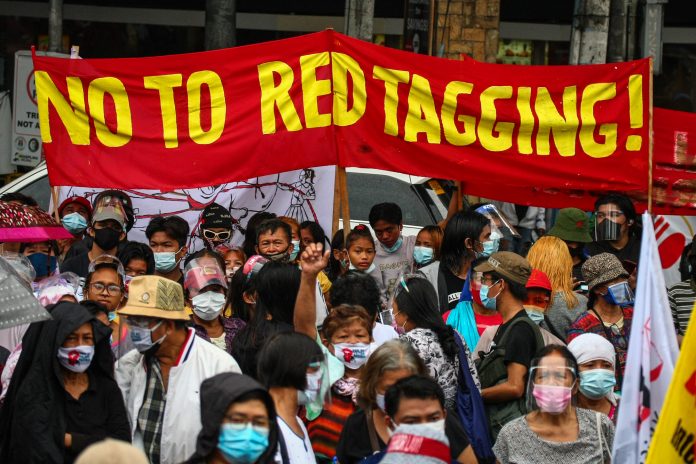The Philippine Misereor Partnership Inc. (PMPI) has condemned the misuse of the Anti-Terrorism Act and the Terrorism Financing Prevention and Suppression Act by state authorities.
These laws, PMPI said in a statement, are being used against human rights defenders, political activists, and social development workers.
PMPI reported an increase in harassment and intimidation of individuals and organizations engaged in social development across various communities.
Workers providing essential services such as alternative energy solutions to remote areas have been accused of supporting terrorism. These accusations have resulted in the freezing of both organizational and personal bank accounts.
Without naming individuals, PMPI cited the case of an executive director from a member NGO who, along with 26 former colleagues from a Visayas-based NGO, has been implicated under anti-terrorism laws.
In May 2023, the Department of Justice (DOJ) of the Philippines charged 27 members, both former and current, of the Cebu-based NGO, Community Empowerment Resource Network (CERNET), with terrorism financing under specific sections of the Terrorism Financing Prevention and Suppression Act of 2012.
The accusations were initially spurred by claims from the 302nd Infantry Brigade, 3rd Infantry Division of the Philippine Army. Subsequently, 23 of these individuals posted a bail of P200,000 each after arrest warrants were issued.
The case has been marked by controversy, including the DOJ’s handling of the preliminary investigation, which involved procedural missteps such as failing to provide the defendants with the resolution before filing the case and mistakenly charging deceased individuals and non-members.
PMPI criticized the government’s actions against those trying to address its shortcomings in delivering social services.
“Why should the government persecute people doing their job of compensating and supplementing the government’s lack of resources and weaknesses in delivering social services?” the group said.
The group also pointed to instances where state institutions spread misinformation about NGO workers. For example, a police-verified social media account in Central Visayas posted a blurred mug shot of a civil society organization worker, falsely labeling her as a wanted personality detained under the terrorism financing law.
PMPI decried red-tagging as a misuse of authority that undermines freedoms and endangers lives. The Supreme Court has noted that such practices threaten personal rights to life, liberty, and security.
The group called on the Philippine government to immediately stop red-tagging development workers. It demanded thorough investigations based on credible evidence and measures to protect human rights activists from harassment and false accusations.
It urged the government to “respect and uphold the fundamental rights of every citizen to exercise their democratic rights and to hold those accountable for vilifying and maligning persons in public with false information, judgment, and accusations without due process.”









